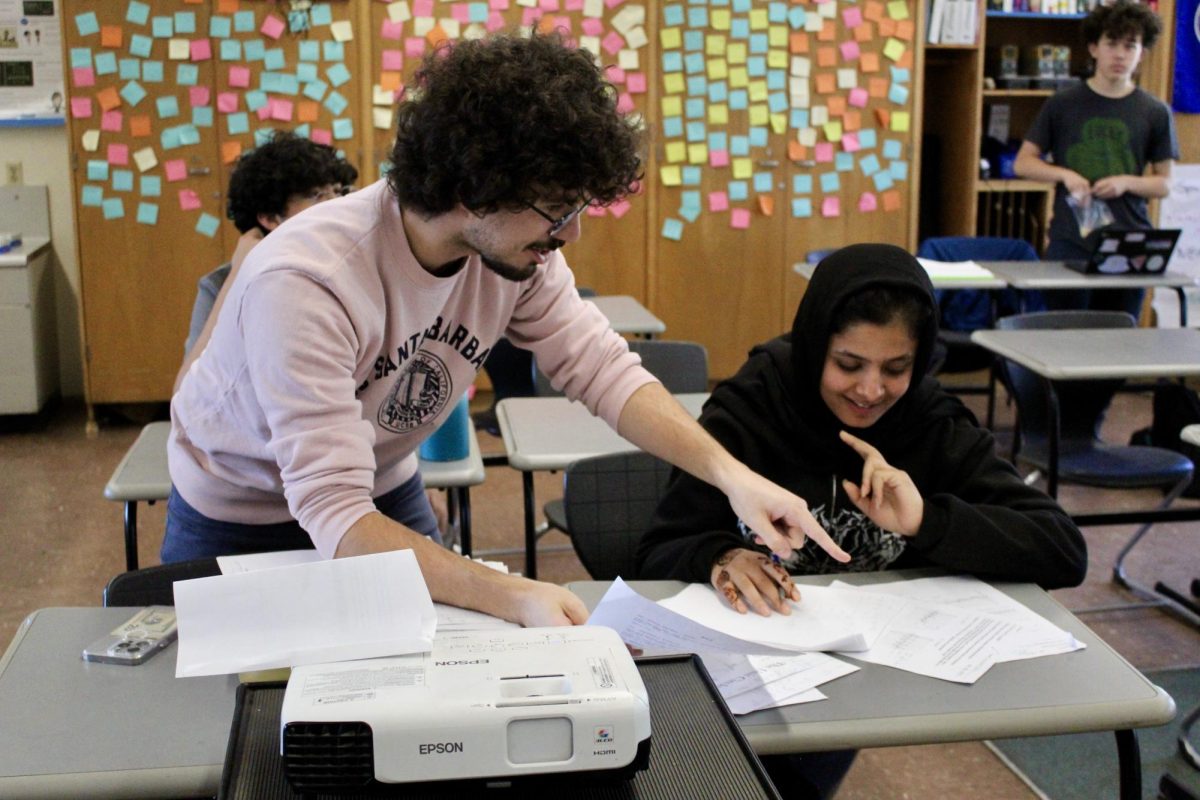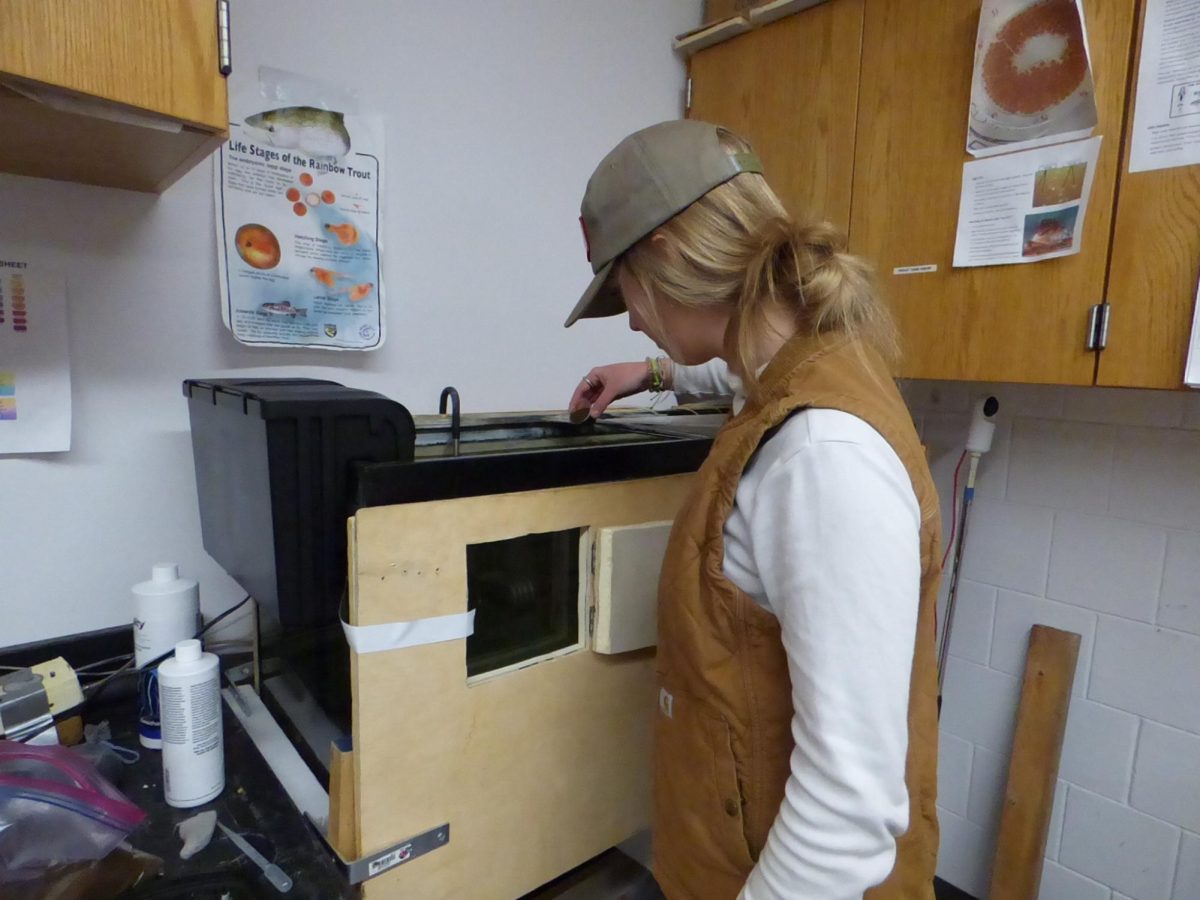“Whenever I’ve gone to a protest, I’ve always listened to the speakers. But when I went up to speak, I felt so passionate about it and I spoke really well, which really surprised me,” sophomore Amneet Kaur said regarding her role in protesting alongside the farmers in India.
In Sept. 2020, anger broke out between farmers in India in response to three central farm legislation passed by the Indian government. The global protest has since become one of the largest protests in world history.
“There are three new laws that the Indian parliament voted for in June, and they were really rushed. [Indian Parliament] chose June because India was obviously going through COVID-19, and they assumed that the farmers wouldn’t assemble in large numbers to protest,” Kaur said. “[Indian Parliament] used COVID-19 to an advantage.”
Kaur has become outspoken about the farmers’ protest, due to family members living in New Delhi and who have been affected by the legislation.
“It started at the dinner table. My mom had called my Grandpa in India the night before [the protests happened] and he was talking about the protesters in his city. I was interested to know what these laws are,” Kaur said. “[Kaur’s grandfather] is a farmer. He, unfortunately, didn’t go to New Delhi because of his health concerns. He’s been supporting from home and telling [Kaur’s family] what’s been happening.”
Kaur has held numerous meetings to spread awareness and to educate children on the protest situation in India.
“I’ve had zoom calls with younger kids to get them to understand what’s happening. It’s hard to explain this situation to younger kids so I’m trying to explain it to them at their level,” Kaur said. “I did an Instagram live with [@sikhteens]. They asked me to talk about it because I’ve been researching it since September when the protests about the laws were beginning.”
At the Chicago Federal Plaza, Kaur spoke at a protest on Dec. 13 as a voice for the younger generation.
“I went to the protest in Chicago and I spoke there. I was the youth voice because they wanted someone from my age group to speak about it since the protest was run by people that were older than me.”
Some of the laws placed in India are taking advantage of the small farmers. One law established a private system around the public money system.
“In India, there is this public money system that has a rate, and it’s made every year based on pesticides, water, and all that,” Kaur said. “[The private system] sounds appealing because the farmers think that they could choose the prices at what they sell at but obviously, in reality, these private companies are going to create low prices and exploit farmers.”
Also in India, the current law for farmers is to grow crop and then sell it. They have introduced a new law that follows contact farming. She explains how this would affect the farmers.
“The farmers are going to have to sign a contract before they grow their crops and state their price and how much they grow. The problem with that is sometimes crops fail,” Kaur said. “Especially in India, climate change is really bad; there’s not enough water. With contract farming, if the farmer fails the contract, the farmer will be liable.”
Kaur’s biggest motivation in talking about the protests is to spread awareness since no one’s really talking about it.
“This has been one of the largest protests in history. Worldwide. It’s something that international media isn’t really covering,” Kaur said.
This story was originally published on DGN Omega on February 9, 2021.































![IN THE SPOTLIGHT: Junior Zalie Mann performs “I Love to Cry at Weddings,” an ensemble piece from the fall musical Sweet Charity, to prospective students during the Fine Arts Showcase on Wednesday, Nov. 8. The showcase is a compilation of performances and demonstrations from each fine arts strand offered at McCallum. This show is put on so that prospective students can see if they are interested in joining an academy or major.
Sweet Charity originally ran the weekends of Sept. 28 and Oct. 8, but made a comeback for the Fine Arts Showcase.
“[Being at the front in the spotlight] is my favorite part of the whole dance, so I was super happy to be on stage performing and smiling at the audience,” Mann said.
Mann performed in both the musical theatre performance and dance excerpt “Ethereal,” a contemporary piece choreographed by the new dance director Terrance Carson, in the showcase. With also being a dance ambassador, Mann got to talk about what MAC dance is, her experience and answer any questions the aspiring arts majors and their parents may have.
Caption by Maya Tackett.](https://bestofsno.com/wp-content/uploads/2024/02/53321803427_47cd17fe70_o-1-1200x800.jpg)
![SPREADING THE JOY: Sophomore Chim Becker poses with sophomores Cozbi Sims and Lou Davidson while manning a table at the Hispanic Heritage treat day during lunch of Sept 28. Becker is a part of the students of color alliance, who put together the activity to raise money for their club.
“It [the stand] was really fun because McCallum has a lot of latino kids,” Becker said. “And I think it was nice that I could share the stuff that I usually just have at home with people who have never tried it before.”
Becker recognizes the importance of celebrating Hispanic heritage at Mac.
“I think its important to celebrate,” Becker said. “Because our culture is awesome and super cool, and everybody should be able to learn about other cultures of the world.”
Caption by JoJo Barnard.](https://bestofsno.com/wp-content/uploads/2024/01/53221601352_4127a81c41_o-1200x675.jpg)






